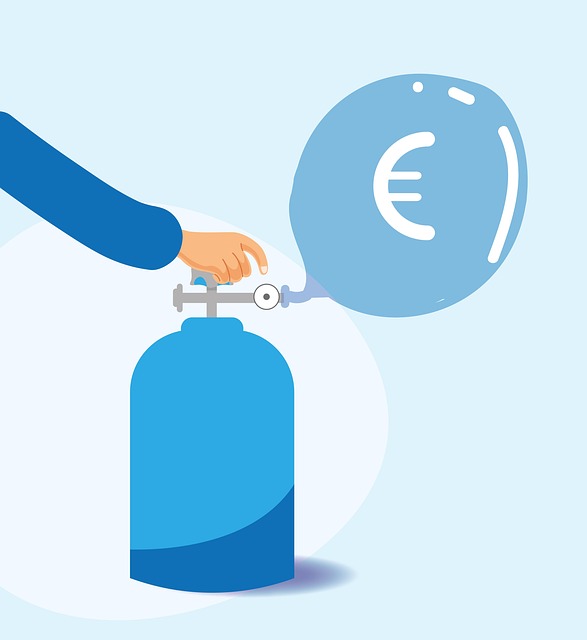
The FIFA Club World Cup highlights the power of unified vision and diverse skill sets in global football. Effective communication, open feedback, adaptability, and celebrating achievements drive team success. This tournament showcases how cultural diversity and strategic innovation contribute to economic growth and athletic excellence.
“Unleashing the power of collaboration, the path to team success lies in a harmonious blend of strategic elements. In the spirit of the FIFA Club World Cup, where global teams converge, this article explores the crucial factors that foster exceptional performance. From a unified vision and open communication to celebrating achievements, each aspect is a vital ingredient in building a cohesive and victorious unit. Discover how these key strategies can transform your team into a formidable force, mirroring the global football spectacle.”
- Unifying Vision: Shared Goals for Team Cohesion
- Effective Communication: Building Trust and Transparency
- Diverse Skills: Leveraging Unique Strengths of Each Member
- Open Feedback Culture: Encouraging Continuous Growth
- Adaptability and Flexibility: Navigating Change Together
- Celebrating Achievements: Fostering Motivation and Camaraderie
Unifying Vision: Shared Goals for Team Cohesion

In the dynamic world of sports, where competition knows no bounds, a unified vision serves as the cornerstone for team success, especially in prestigious events like the FIFA Club World Cup. This global tournament not only showcases the pinnacle of club football but also underscores the power of shared goals in fostering team cohesion. When athletes and coaches alike embrace a collective objective, they create an unbreakable bond that transcends cultural and geographical barriers—a feat reminiscent of building bridges between nations through sport.
The history of the Club World Cup is replete with instances where a unified vision has propelled teams to remarkable achievements. Beyond the glitz and glamour, this cross-continental competition offers host cities economic benefits while leaving an indelible impact on fans worldwide. As the tournament progresses, it becomes evident that the true winners are not just the participating clubs but also the communities that play host, as they find us at these events, experiencing a tapestry of diverse cultures woven through the threads of athletic excellence and shared passion.
Effective Communication: Building Trust and Transparency

In any high-pressure environment, especially on the global stage of a FIFA Club World Cup, effective communication becomes the cornerstone of team success. Players who can seamlessly express their ideas, strategies, and concerns foster an atmosphere of trust and transparency. This open dialogue encourages every member to contribute, ensuring that everyone is aligned with the team’s objectives. When players feel heard, they are more likely to take ownership of their roles, leading to improved performance on the field. The ability to communicate effectively goes beyond words; it involves active listening and understanding each other’s unique strengths and weaknesses, much like a well-choreographed dance where every step is in sync with the others.
In football, where dribbling, passing, and shooting are essential skills, effective communication serves as the unseen thread that binds them together. Just as a language enables people from diverse backgrounds to connect, football as a language allows players to convey intricate tactics and build attacks with precision. This is particularly crucial during quick transitions from defense to offense, where split-second decisions can determine victory or defeat. Trusting in one’s teammates and understanding their next moves without even having to speak can be the difference between winning a global soccer competition and falling short. So, when teams find us at international soccer showcases, it’s not just about showcasing talent; it’s about building bonds that transcend language and culture through the universal language of football.
Diverse Skills: Leveraging Unique Strengths of Each Member

In the competitive world of sports, success lies in recognizing and harnessing the unique skills each team member brings to the table—a strategy that has been masterfully employed on the global stage during events like the FIFA Club World Cup. Just as a diverse array of players from around the globe unite to create a formidable soccer squad, so too can organizations benefit from assembling teams with a variety of talents and backgrounds. Each individual possesses their own set of strengths, be it strategic thinking, exceptional communication skills, technical prowess, or creative problem-solving abilities. By embracing this diversity, teams can achieve remarkable outcomes that might otherwise remain hidden behind a monolithic approach to collaboration.
The FIFA Club World Cup, as a global sports event, serves as an excellent example of the economic benefits of such tournaments. When top clubs from across continents converge, they not only deliver breathtaking performances but also foster an exchange of ideas and strategies that can revolutionize the sport. This dynamic environment encourages teams to push boundaries, innovate, and adapt, ultimately elevating the overall level of competition. So, when you watch these star players in action, remember that their collective success is often a direct result of leveraging diverse skills—a testament to the power of embracing uniqueness within a team setting.
Open Feedback Culture: Encouraging Continuous Growth

In today’s fast-paced and competitive sporting landscape, fostering an open feedback culture is essential for team success, especially in prestigious global tournaments like the FIFA Club World Cup. This concept encourages players, coaches, and support staff to openly communicate their thoughts and suggestions, creating a dynamic environment that promotes continuous growth. By embracing this culture, teams can identify areas of improvement and innovate strategies, much like past winners and finalists of cross-continental competitions have done.
Such an atmosphere empowers every individual within the team to contribute constructively. It enables coaches to implement tailored training programs based on player feedback, ensuring everyone is aligned with the team’s goals. Moreover, it encourages players to take ownership of their performance, fostering a sense of accountability that can propel them to excel in multi-continent tournaments where they compete against the world’s best. Encourage open dialogue by creating safe spaces for feedback; this simple step can be the catalyst that propels your team to new heights, even surpassing the achievements of past winners. Give us a call at worldwide support for clubs for more insights on building high-performing teams.
Adaptability and Flexibility: Navigating Change Together

In today’s dynamic and ever-changing world of football, adaptability and flexibility are paramount for team success, especially when competing in prestigious events like the FIFA Club World Cup. Just as international football tournaments bring together diverse teams from across the globe, so too do they demand a versatility that transcends cultural and tactical barriers. Teams that embrace change and navigate uncharted territories with grace often find themselves at an advantage. This is not just about adjusting strategies on the fly; it involves fostering a culture where players and coaches alike are comfortable embracing new ideas, formations, and playstyles.
Just as football itself serves as a universal language, enabling communication across borders, adaptability becomes the bridge that connects teams to their goals. By cultivating an atmosphere of flexibility, squads can harness the power of historical performance analysis, learning from past successes and failures to anticipate and counter the unpredictable. This is particularly crucial in high-pressure settings like the FIFA Club World Cup, where a team’s ability to adapt on a moment’s notice can make all the difference between triumphing as champions or facing an early exit.
Celebrating Achievements: Fostering Motivation and Camaraderie

Celebrating achievements plays a pivotal role in fostering motivation and camaraderie within any team, be it in the FIFA Club World Cup or elite club football. Recognizing and honoring milestones achieved not only boosts morale but also strengthens the bond among teammates. This is especially true for local businesses that tap into the power of sport to create cultural exchange opportunities; when wins are celebrated, a sense of collective pride emerges, driving the team towards even greater heights.
Just as football’s ultimate prize, top-tier soccer, requires consistent dedication and hard work, so does maintaining a positive team dynamic. Incorporating post-victory rituals or simple gestures like acknowledging individual contributions during meetings can go a long way in fostering a supportive environment. Encourage players to share their achievements with one another, creating an atmosphere of mutual respect and appreciation. Give us a call at Tournament Evolution Timeline for more insights on how these strategies can be implemented to achieve sustained success in any sport, locally or globally.
In the spirit of the FIFA Club World Cup, where teams from across the globe unite under a shared passion for football, successful team dynamics stem from a combination of key factors. By fostering a unifying vision with clear goals, encouraging open and transparent communication, leveraging diverse skill sets, cultivating an open feedback culture, embracing adaptability, and celebrating collective achievements, teams can create an environment that mirrors the camaraderie and excellence seen on the world stage. These principles, when implemented effectively, empower teams to not only compete but also thrive in their respective fields.




